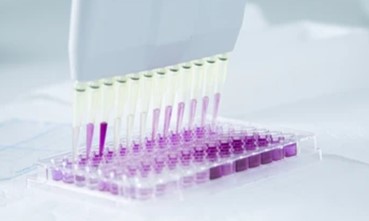Preclinical Research Services
Rare cardiovascular diseases pose a distinct challenge in the realm of drug discovery and development due to their infrequent occurrence and intricate pathophysiology. Preclinical research services are crucial in identifying, testing, and refining potential therapeutic agents before they proceed to human trials. As a leading provider of preclinical research services focused on rare cardiovascular disease drug discovery and development, our company delivers a diverse range of customized solutions to effectively meet the specific requirements of our clients in this area.
Overview of Preclinical Research Services
Preclinical research denotes the preliminary stages of drug development that precede trials involving human subjects. This phase primarily involves investigating potential therapeutic drugs in vitro and in vivo (using animal models) to evaluate their safety, efficacy, pharmacodynamics, and pharmacokinetics.

- Pharmacodynamics
Pharmacodynamics explores how a drug impacts a biological system and the processes by which it influences disease. It identifies the drug's mechanisms of action in both in vivo and in vitro settings to pinpoint therapeutic effects and potential adverse reactions. - Pharmacokinetics
Pharmacokinetics investigates the absorption, distribution, metabolism, and excretion of a drug within a biological system. This study aids in understanding the dynamic changes of a drug in the body and helps determine the optimal dosage and dosing frequency. - Drug Safety Evaluation
Drug safety evaluation aims to assess a drug's safety and potential adverse reactions under anticipated usage scenarios. Through this evaluation, we can identify and manage potential safety risks associated with the drug, ensuring the safety of candidate drugs.
By identifying safety and efficacy concerns early in the developmental process, preclinical research aids in mitigating risks before human trials, laying the groundwork for advancing future drug developments. The key objectives of preclinical research in the context of rare cardiovascular diseases encompass:
- Efficacy Evaluation: Assessing whether the drug achieves the desired therapeutic effects on cardiovascular conditions.
- Safety Assessment: Evaluating the toxicity and potential side effects of new drugs.
- Dose Optimization: Establishing the optimal dosage ranges for subsequent trials.
- Mechanism of Action Studies: Understanding the drug's molecular-level functionality and its impact on cardiovascular pathways.
- Regulatory Compliance: Furnishing essential data required by regulatory bodies for trial approval.
 Fig.1 Preclinical models of cardiac diseases. (van Doorn, E. C. H., et al., 2024)
Fig.1 Preclinical models of cardiac diseases. (van Doorn, E. C. H., et al., 2024)Our Services
Our team of experts brings extensive experience in both cardiovascular biology and drug development, coupled with our cutting-edge facilities and commitment to innovation, enables us to stand out in the preclinical research sector for rare cardiovascular diseases, offering a comprehensive range of services including pharmacodynamics, pharmacokinetics, and drug safety evaluation, thereby streamlining the drug development process.
In Vitro Efficacy Models
- Genetically Engineering Model
- Chemical-induced Model
- And More
We offer preclinical research services for a variety of rare cardiovascular disease therapies, including but not limited to the following types:
- Rare Vascular Diseases
- Rare Cardiac Tumors
- Other Cardiovascular Diseases
Through our advanced technologies, expertise, and methodologies, researchers in the pharmaceutical and biotechnology sectors can bolster their capacity to develop effective and safe therapies for rare cardiovascular diseases, thereby facilitating the transition from early drug development stages to human testing. If you are interested in our services, please feel free to reach out to us.
Reference
- van Doorn, Elisa C H et al. "Preclinical Models of Cardiac Disease: A Comprehensive Overview for Clinical Scientists." Cardiovascular engineering and technology 15.2 (2024): 232-249.
For research use only, not for clinical use.



